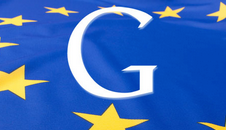German Courts Follow French Ruling & Order Google To Block Max Mosley Images In Search Results
Google has lost another case in the Max Mosley lawsuit, this time in Germany. According to a Reuter’s report, a German court has ruled Google is responsible for distributing scandalous pictures of the former Formula One president, and is ordering the search engine to block links to the images from appearing in search results. The […]

The lawsuit stems from a 2008 case Mosley won against the British tabloid News of the World for publishing photos of Mosley engaged in a sex party with prostitutes. Last year, Mosley filed a lawsuit against Google in France and Germany to keep the images from appearing in search results.
French courts ruled in favor of Mosley last November and ordered Google to keep the Mosley pictures from showing up in search results. In response to the court rulings, Google claimed it would have to build a new software filter to censor the images.
From the beginning, Google has argued it is not responsible for censoring search engine results. In September of last year, when Mosley originally filed a lawsuit against the search engine, Google posted a plea on its Europe Blog, asking the courts to dismiss the case.
On its blog post from September 4 of last year, Google said it had already removed hundreds of pages per Mosley’s requests, and that building a filter to block images would represent, “an alarming new model of automated censorship.” Google went on to claim:
...the law does not support Mr. Mosley’s demand for the construction of an unprecedented new Internet censorship tool. In repeated rulings, Europe’s highest court has noted that filters are blunt instruments that jeopardise lawful expression and undermine users’ fundamental right to access information.
In today’s Reuter’s report, the German court is quoted as saying, “The court is of the opinion that the banned pictures of the plaintiff severely violate his private sphere, as they show him active in sexual practices,” and although Google is not responsible for taking the pictures, the site was, “Responsible as a distributor of the images.”
The Reuter’s report also says Google would appeal the ruling and included the following comment from a Google spokesman, “It could mean that internet providers are required to monitor even the smallest components of content they transmit or store for their users. We believe this is contrary to European law.”
Opinions expressed in this article are those of the guest author and not necessarily Search Engine Land. Staff authors are listed here.
Related stories